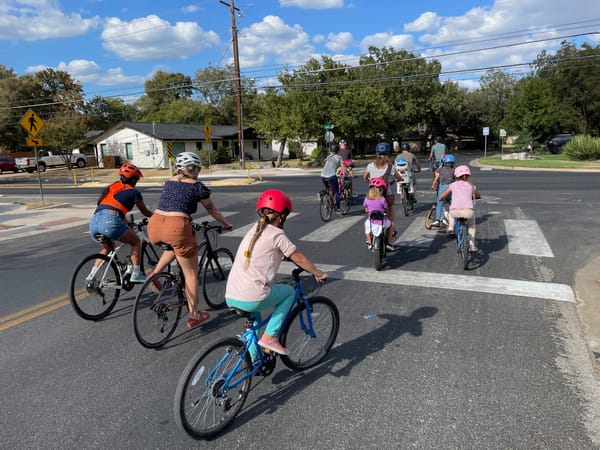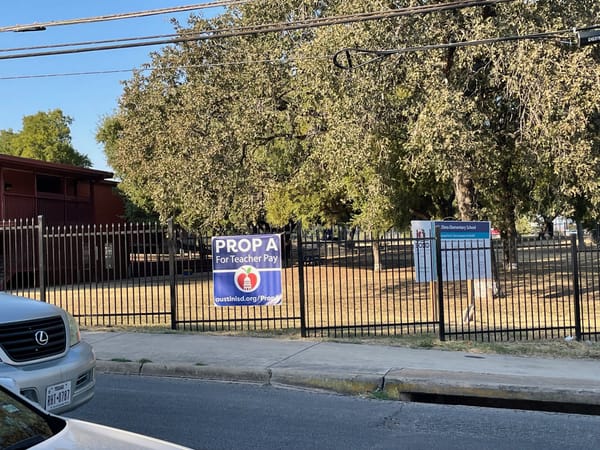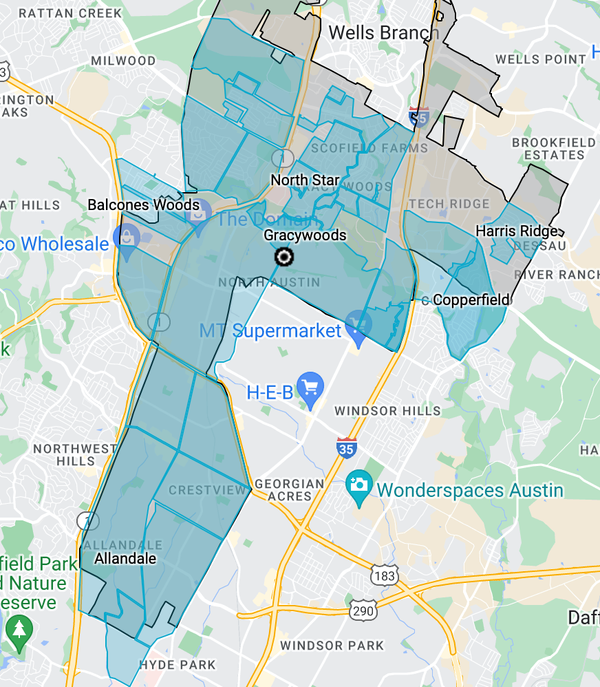Has crime dropped due to DPS? We don't know yet
APD is playing the media with misleading stats.
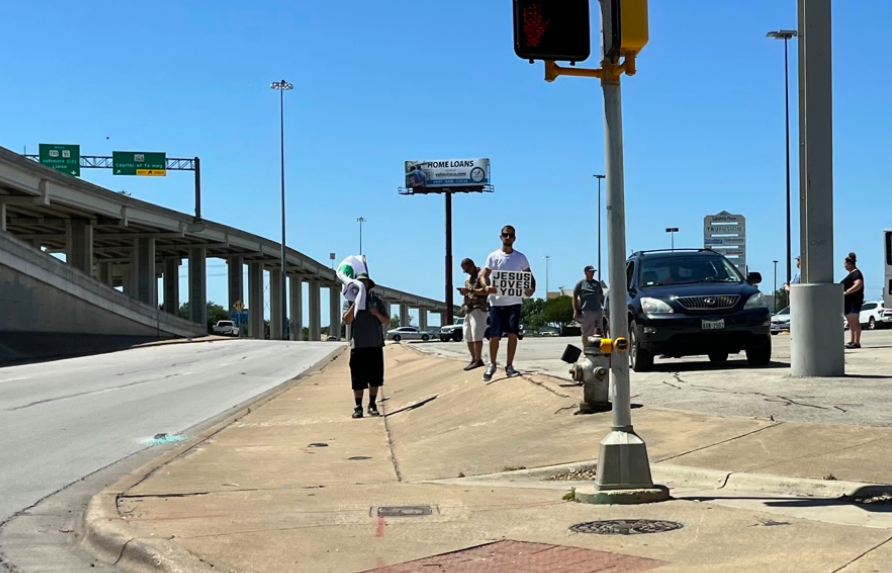
Last week Austin Police Chief Joe Chacon released a memo and held a press conference touting the benefits of the partnership between APD and the Department of Public Safety that Mayor Kirk Watson negotiated with state leaders at the end of March.
The resulting news coverage was extremely positive. Here's the headline from KUT, which was also republished in the Austin Monitor:
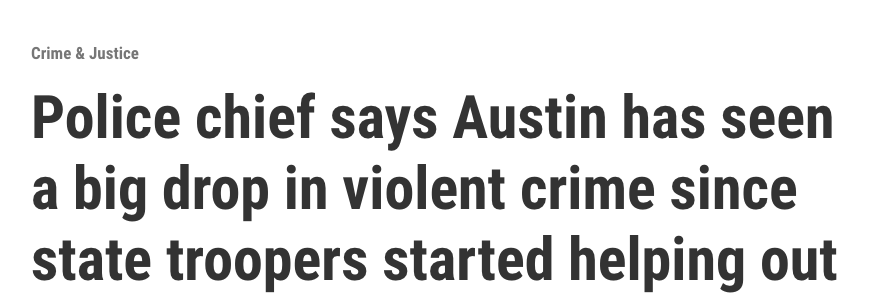
Here's the lede from KXAN:

This aligns with what APD Chief Joe Chacon has claimed. From his memo last week:

Unfortunately, he didn't provide any evidence to support that claim. Instead, he provided the following data:

So, contrary to what the chief stated and numerous media outlets reported, there is no data to show that violent crime has decreased since DPS started patrolling.
Or rather, there might be data, but the chief is not disclosing it.
The funny thing is, I wouldn't expect him to produce data proving that the partnership is working. It's only been a couple weeks! I don't actually expect a few dozen more cops on the streets to immediately produce a noticeable impact, particularly on interpersonal violence.
And yet, he apparently feels obligated to justify the operation and is leaning on misleading statistical claims. Worse, the local media is failing to push back.
So, what numbers should we be looking?
What numbers might suggest that DPS has made a difference? Easy: how many violent crimes were reported the week before the partnership kicked off? More than 67?
If you tell me that violent crime decreased from one week to the next, I won't think much of it (these things fluctuate) but it's closer to an apples-to-apples comparison than comparing one week this year to last year's average. Especially because there have already been indications that violent crime is declining.
For instance, in the two monthly crime reports that he's released so far this year, the chief has twice reported drops in "crimes against persons." Crimes against persons declined 8% from January 2022 to January 2023 and declined 5% from Feb 22 to Feb 23. However, the totals for those months were 10% and 13% lower than the monthly average from last year. But of course comparing it against the average doesn't make sense because violence is higher during certain times of the year.
(The monthly reports do not include a specific tally for "violent crimes," as the chief did in his recent memo on the DPS partnership. Most of the crimes he categorized under violent fall under "crimes against persons," but robbery is classified as a "crime against property." )
This morning I requested figures on violent crime for every other week this year from APD. Hopefully, considering how quickly the chief was able to tout the figures for one recent week, the department will promptly provide the data. But it's possible they'll make me do a public records request and I won't get the information for weeks, if not months.
Does anyone actually care about the data?
Writing about this issue is frustratingly similar to writing about the expansion of I-35 or the reconstruction of the Convention Center. It's a depressing reminder that most people who work in or follow politics don't care about data. Numbers are simply one tool to justify their faith-based positions. Ironically, those of us who insist on good data are the ones branded as unreasonable and dogmatic.
Thus, if I point out that Chacon's numbers are misleading, it must be because I'm anti-police. Of course, I'm not anti-police and I'm not even against the DPS partnership. If nothing else, I would definitely like to see more enforcement of speeding and reckless driving.
To get daily in-depth reporting and analysis on city politics, visit the website to become a subscriber.


